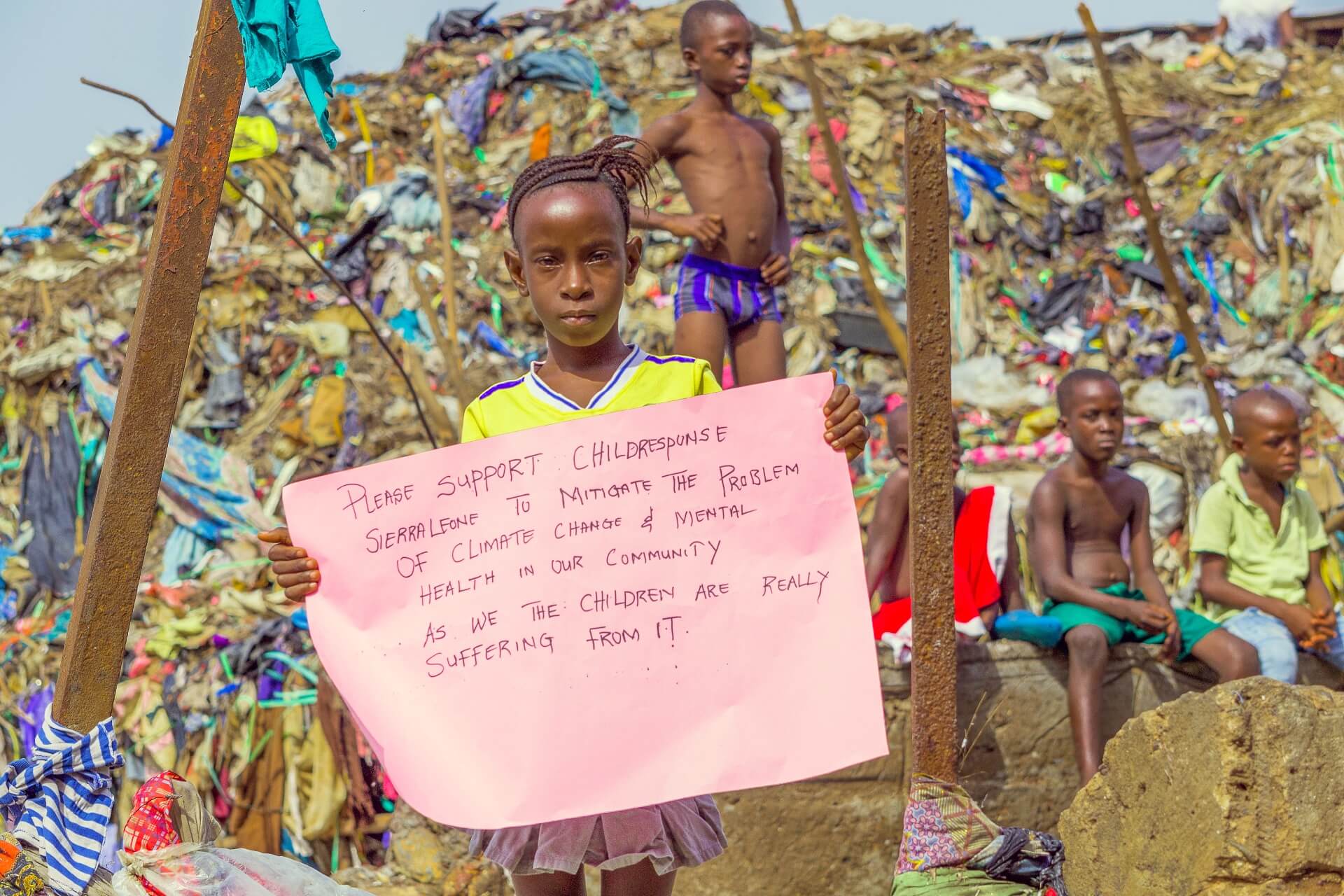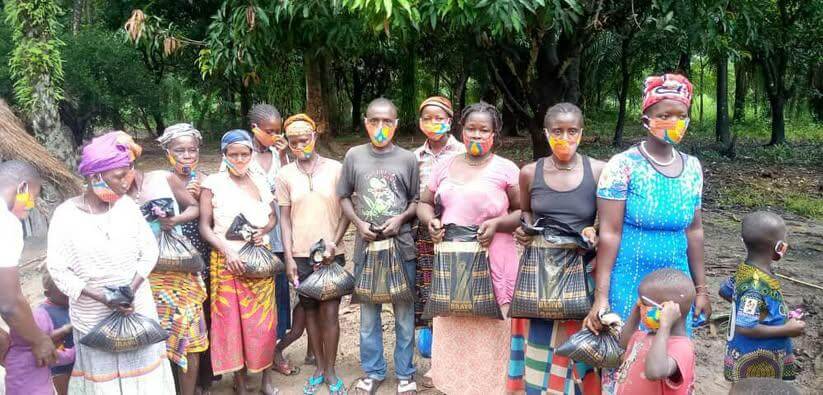Description

Effect of Climate Change and Mental Health on Children
The effect of climate change and mental health has been a problem affecting children in Africa and Sierra Leone to be specific. There may be no greater, growing threat facing the world’s children and their children than climate change and mental health. This mounting global crisis has the potential to undermine many of the gains we have made in child survival and development and poses even greater dangers ahead. In every crisis, children are the most vulnerable. Climate change and mental health is no exception. In connection to this, considering the fact that Sierra Leone is one of the poorest countries in the world and faces multiple risks from climate change & mental health that threaten key economic sectors and increase the potential for wider environmental degradation, we as an organization aiming to eradicate or reduce the effect of mental health consequences of events linked to changing
global climate such as; mild stress and distress, high-risk coping behavior such as increased alcohol use and occasionally, mental disorder such depression, anxiety and post-traumatic stress affecting either directly/indirectly.
PROBLEMS
There are evidences which indicate that children are suffering from climate change and mental health, which in turns tells on their physical and mental being preventing them from living normal life. Climate change-related and mental health impacts can also lead to drop out of school, force children to move, or lead to a loss of social support and community resources —all of which have mental health consequences. In addition, anticipation of extreme weather events and concern about the phenomenon of climate change can be stressful. Nowadays, climate change brings us more frequent and devastating natural disasters. In emergencies such as natural disasters, rates of mental disorders often double. Incremental climate change such as rising temperature, rising sea levels and episodic drought can change nature land scape, disrupt food and water resources, change agricultural conditions, change land use and habitation, weaken infrastructure and give rise to financial and relationship stress, increase risk of violence and aggression and displacement of entire community which children may suffer from.

How does climate change affect mental health? All the major threats to physical health from climate change also have detrimental effects on mental health. This is not surprising as mental health and physical health are tightly linked, with high rates of comorbidities (multiple conditions that occur at the same time in the same person) and at the population level, good physical health and good mental health are strongly correlated. The following section describes how climate change threatens the mental health of citizens around Sierra Leone especially children, either directly or indirectly. 1, which expands the illustration of the relationships between climate change impacts and mental health. High temperatures worsen a range of health outcomes. They have been shown to increase rates of suicide, mental distress, and hospital stations
for mental health conditions, and to have negative consequences for physical and mental health including increased mortality of people who meet the criteria for mental illness. Heat waves and extreme high temperatures have been associated with a range of negative societal outcomes and increased risks, which may in turn influence mental health. These include reduced economic outputs, increased conflict and societal violence, and disturbed sleep. Temperature change can also lead to changes in the body, for example affecting blood flow and the central nervous system, which can in turn lead to cognitive and emotional changes that can negatively impact mental health and emotional wellbeing. Experiencing the direct impacts of extreme weather events, including intense storms and floods, is associated with extreme psychological stress for some individuals, with longer term Distress in some cases. These experiences are most commonly described as post-traumatic stress disorder (PTSD), depression and anxiety. There is also evidence that these events can cause increased substance abuse and a higher risk of suicide. For some individuals, the effects on mental health have been shown to persist or increase even years after the events. Reoccurring disasters, such as if one’s house or business is repeatedly flooded, have been shown to have a particularly damaging psychological impact.
The social and economic disruption caused by climate change, including for example migration, has a negative impact on mental health. Forced displacement or evacuation after climate-related disasters has been linked to depression, anxiety and PTSD. Longer-term forced migration resulting from climate-related threats can also lead to higher rates of diagnosed mental disorders and worsening mental wellbeing. Food and water insecurity also have implications for mental health. Drought and crop failures lead to economic losses, hunger, and thirst, which clearly can lead to distress and desperation, i.e. poor mental health and wellbeing, with increased suicide rates for farmers affected by drought. A lack of clean water can also affect mental health and emotional wellbeing, with a disproportionate effect on girl children, including due to the need for water to manage menstrual hygiene.
SOLUTION
It is important to note that the effective implementation of this plan requires rigorous community organization and sensitization on the impacts of climate change on local livelihoods and other coastal economic sectors. Sensitization and education are anticipated to change local community-
and policy-level behaviors by demonstrating the direct link between healthy ecosystems, sustainable livelihoods and climate security. Effective implementation will require the active support of the Government of Sierra Leone and development partners and agencies
JUSTIFICATION
There is nothing that could be done to salvage the problem of climate change and mental health that children are suffering from in Sierra Leone if non- governmental organizations don’t serve as genuine partners in development. Our organization has considered mitigating the problem of climate change and mental health in affected communities by sensitization ,improve farming ,clear the waterways that would prevent flooding, restore nature to absorb more carbon ,reduce waste /plastic try recycling them into bricks and build environmental friendly homes. This project will be used to complement public policy implementation & speak to fulfilling the United Nations sustainable development Goals.









Reviews
There are no reviews yet.